
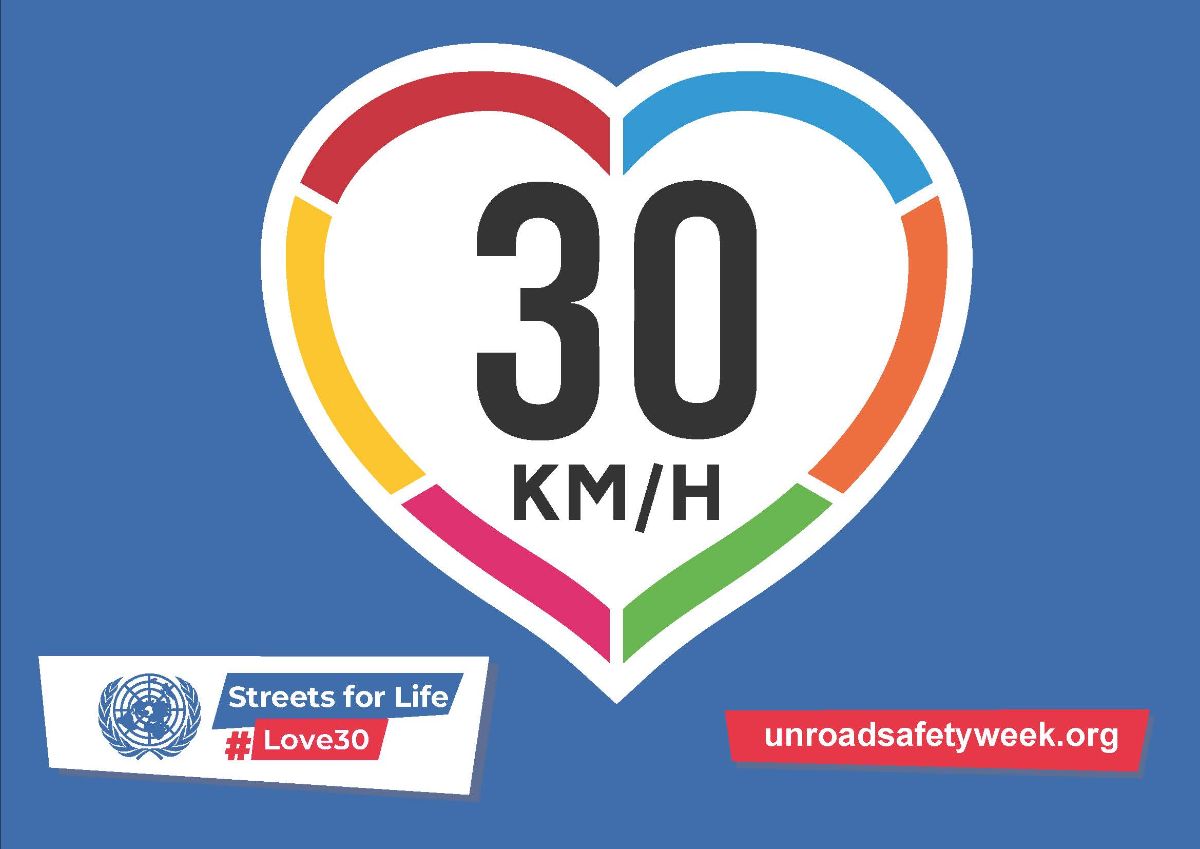
Η ΕΥΘΥΤΑ-ΠΑΡΑΤΗΡΗΤΗΡΙΟ ΟΔΙΚΗΣ ΑΣΦΑΛΕΙΑΣ ΡΟΔΟΥ, είναι ενεργο μέλος της Global Alliance NGOs for Road Safety
https://www.unroadsafetyweek.org
GET READY FOR UN GLOBAL ROAD SAFETY WEEK
The UN Global Road Safety Week website and materials are now live. Check
them out, sign the open letter, and download resources and the toolkit HERE.
The Alliance's focal event for the week will be the online Global
#Love30 Rally bringing NGOs and policy makers in dialogue for a call to
action for 30 km/h limits. The rally will be held on Wednesday 19 May
2021 at 2pm CEST. The Alliance is also supporting regional discussions
with legislator and policy maker groups in Africa, Europe, and Latin
America in the run up to the week. Find out more about these events HERE.
As you prepare for the week, check out our capacity building sessions on speed and campaigning. Find the recordings HERE. Alliance members, don't forget to submit your applications for small grants for UNGRSW activities by Monday 29 March 2021.

|
WHY 30 FOR PEDESTRIANS
“Pedestrians are 100% of road users. That is strong and fragile at the
same time. Pedestrians are 100% of voters, and, while defending
pedestrian rights, you are defending everybody — this is a very powerful
political stand! But, by being everyone and everybody, pedestrians lack
an identity. And this lack of political identity could be your main
difficulty.”
Mário Alves and Geert Van Waeg of the International Federation of
Pedestrians (IFP) talk about why 30 km/h limits are needed for
pedestrians and how NGOs can advocate for them in a guest article HERE.
|
|
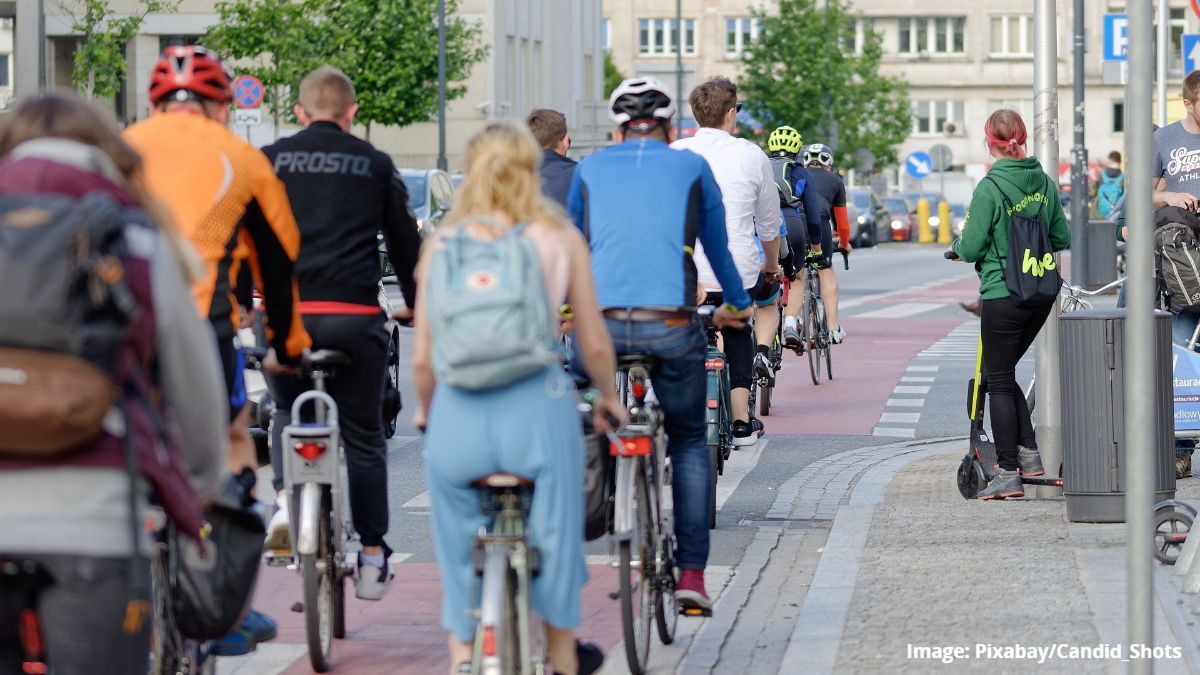
|
WHY 30 FOR CYCLISTS: A CALL FOR INTELLIGENT SPEED ASSISTANCE
“Cars are always designed for the fastest speed possible, whether they
are in slow, calm urban areas or on fast motorways,” says Ceri
Woolsgrove, European Cyclists’ Federation (ECF). “Vehicles also have
very little contact with the outside world, driving over 100 km/h on the
motorway feels the same as driving 30 or 40 km/h. There are zero
sounds, movements, or contact with the outside world when cocooned in a
steel and aluminium womb!”
In this article, Ceri makes the case for vehicle technology that assists
drivers to keep within the speed limit. ECF, alongside a collection of
NGOs and organizations, are advocating for implementation of Intelligent
Speed Assistance. Read Ceri’s article HERE.
|
|

|
WHY 30 FOR CHILDREN AND YOUTH
“It is little wonder that for parents, carers, and children alike,
streets around the world are seen as spaces that must be passed through,
not lived in,” says Kate Turner, FIA Foundation. “For many families,
public spaces dominated by fast-moving traffic mean they fear their
children’s exposure to the physical harms of road traffic injury, dirty
air, and noise pollution. Put simply, many streets do not serve the
needs of everyone and, in particular, the needs of those who walk,
cycle, or play.”
Kate puts forward the case for 30 km/h from the perspective
of healthier, more equitable and climate-friendly streets for children
and youth. Read the article HERE.
|
|
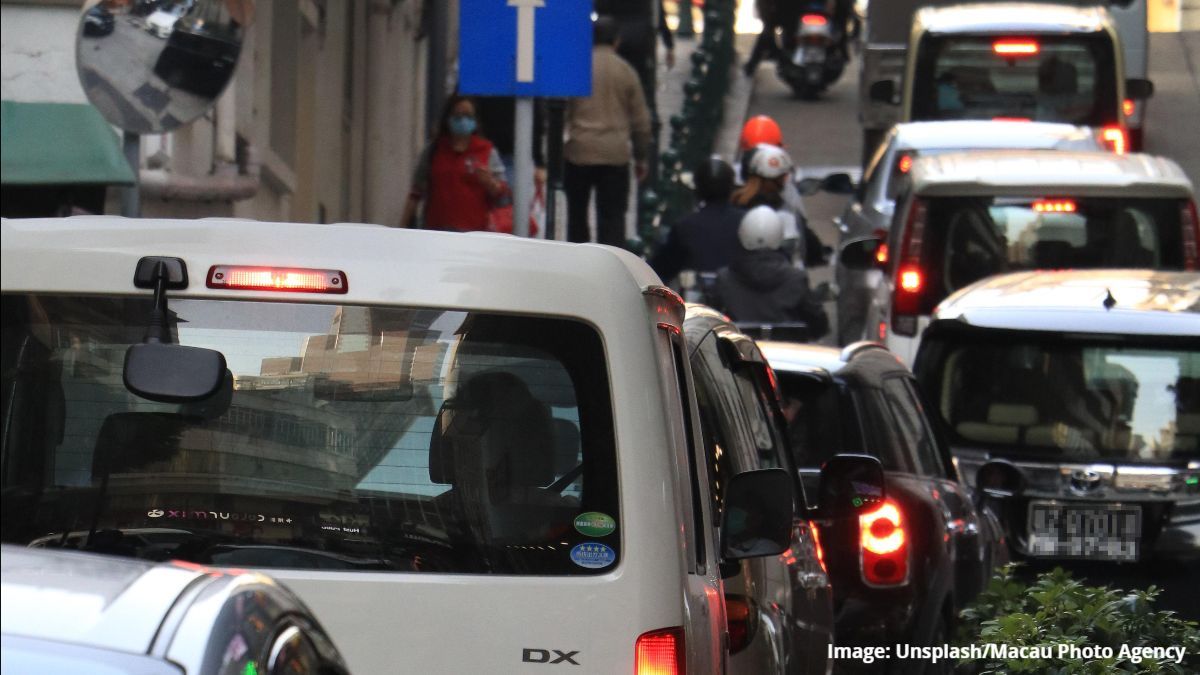
|
WHY 30 FOR THE ENVIRONMENT
“There is a stark need to reduce vehicle emissions. 30 km/h limits in
urban areas are one of the tools available,” says Diana Odero, UN
Environment Share the Road Programme. “Lower speed streets improve
quality of life, make communities more livable for families, and enable
children to be more independent.”
Diana shares some of the evidence-based arguments that demonstrate that
lower speeds reduce toxic emissions and noise pollution, making our
urban areas safer, healthier, more enjoyable, and more sustainable. Read
the article HERE.
|
|

|
WHY 30 FOR EQUALITY
“Road safety NGOs need to show other activists how this campaign can
benefit us all, and support a more equal world, in which we all can
participate and enjoy different activities,” says Sara Múnera
Orozco, Whee, an NGO working to transform society and avoid exclusion in
Colombia and Latin America.
She highlights the mobility issues that persons with disabilities
experience and how road safety NGOs can draw in equality campaigners to
support 30 km/h streets. Read the interview HERE.
|
|
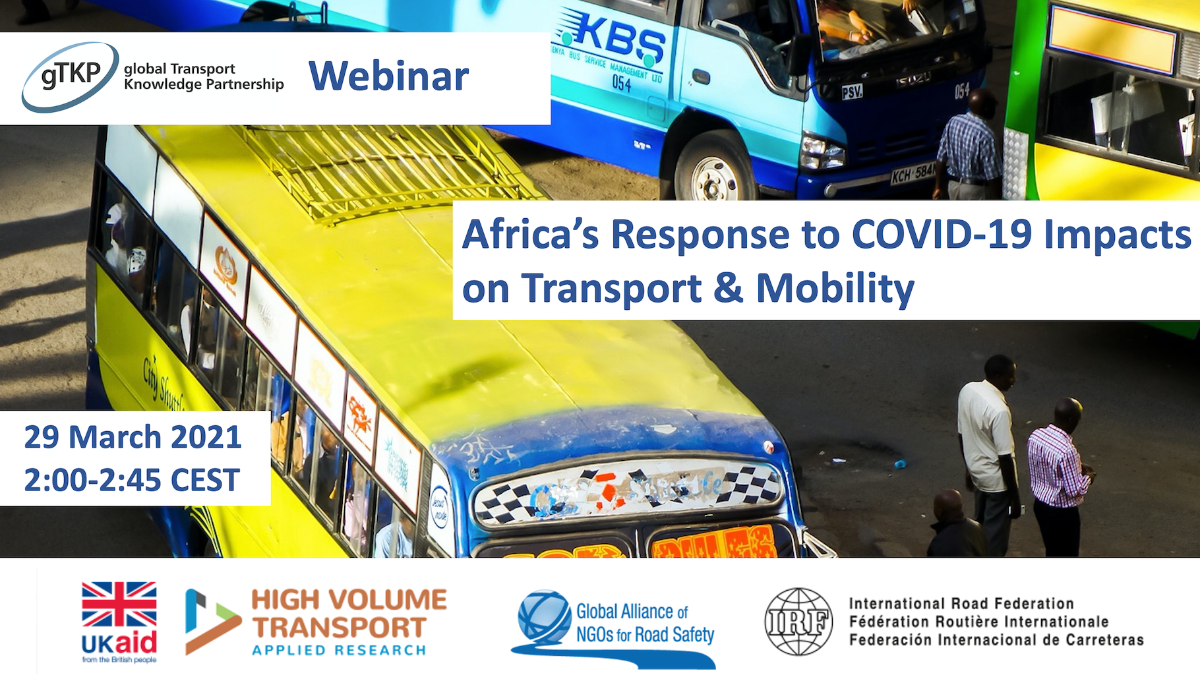
|
AFRICA'S RESPONSE TO COVID-19 IMPACTS ON TRANSPORT AND MOBILITY
The Alliance has been working with the International Road Federation
(IRF) Geneva to review the impact of the COVID-19 response on transport
and mobility in seven countries in Africa. NGOs in Cameroon, Kenya,
Morocco, Mozambique, Senegal, Tanzania, and Uganda assisted by
organizing key informant interviews.
The review will provide evidence-based suggestions that policy makers in
Africa should consider when defining responses to potential future
waves of COVID-19, as well as recovery measures.
You are invited to join a webinar to learn about the results of the
review and recommendations for policy makers. It will be held on Monday
29 March 2021 at 2pm CEST. Register HERE.
The project has been funded by UK Aid managed by the High Volume Transport (HVT) Applied Research Programme.
|
|
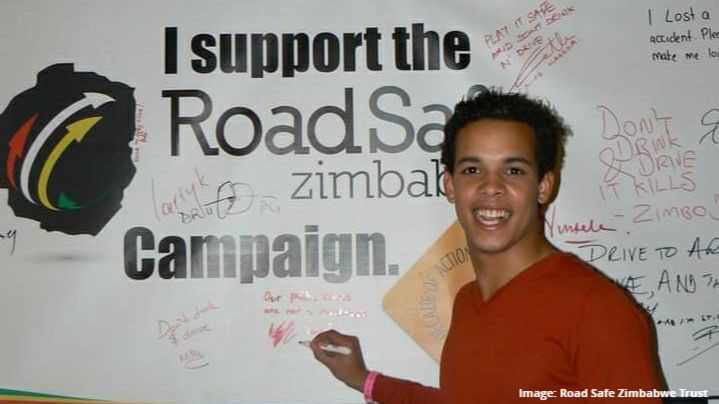
|
ALLIANCE WELCOMES NEW MEMBERS
The Alliance is pleased to welcome a new member that joined us recently.
Read more about our new member HERE.
|










Δεν υπάρχουν σχόλια:
Δημοσίευση σχολίου